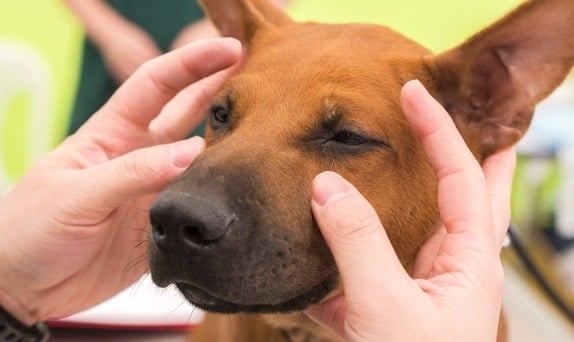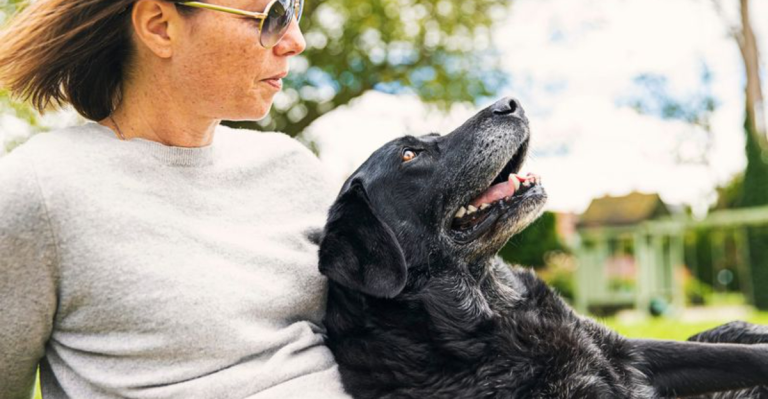How to Keep Your Yorkshire Terrier Happy, Healthy, and Spoiled
Bringing home a Yorkshire Terrier is like inviting a pint-sized ball of energy, sass, and elegance into your life. These tiny pups may weigh just a few pounds, but don’t be fooled—Yorkies pack a giant personality into their small frame.
They’re confident, curious, and famously loyal, with a glamorous coat that rivals a show dog and a fearless attitude that often makes them act twice their size.
But beneath all that bravado is a loving, sensitive companion who thrives on affection and attentive care.
Caring for a Yorkshire Terrier isn’t just about keeping them looking stylish (though, let’s be honest, that luscious coat does need some pampering).
It’s about understanding their unique needs—from their delicate digestive systems to their tendency toward dental issues, and even their spirited nature that benefits from early socialization and consistent training.
These pups may be small, but they don’t come with a small to-do list.
Whether you’re a new Yorkie parent or just looking to up your game, this guide will walk you through everything you need to know to keep your little diva—or dude—healthy, happy, and thriving.
We’ll dive into proper nutrition, grooming routines that actually work, the best ways to exercise such a compact pup, and tips for avoiding common health problems that tend to pop up in the breed.
Owning a Yorkshire Terrier is a joy, but like all good things in life, it takes a bit of effort.
The good news? Every ounce of love and care you give your Yorkie will come back tenfold—in tail wags, lap cuddles, and that signature spunky charm that makes them one of the most beloved toy breeds in the world.
Let’s get started on helping your Yorkie live their best, most fabulous life.
General Overview
Yorkshire Terriers, or Yorkies, are a curious blend of boldness and charm. Despite their toy-sized stature, they’re fearless, spunky, and have a surprisingly loud bark. Originally bred to catch rats in mills, they still carry a hunter’s alertness and agility.
Their loyalty knows no bounds, often forming tight bonds with one person in the household. While loving and cuddly, they can also be independent and slightly stubborn.
Understanding their temperament helps you train them with patience and affection.
Nutrition & Feeding
Yorkies have fast metabolisms but tiny stomachs, so they do best with small, frequent meals. Choose a high-quality dog food specifically formulated for small breeds, ideally rich in protein and healthy fats.
Avoid fillers like corn or soy, which don’t offer much nutritional value. Also, keep an eye on portion sizes—obesity can creep up quickly in such a small body.
Yorkie puppies need more frequent feeding—about 3 to 4 times a day—to keep their blood sugar stable. As they mature into adults, two well-spaced meals a day typically suffices.
Stick to consistent times to help regulate digestion and behavior. Avoid giving table scraps, which can lead to begging or gastrointestinal upset.
Certain foods are downright dangerous for Yorkies. Chocolate, grapes, onions, and xylitol-sweetened items are all toxic. Even fatty scraps like bacon can cause pancreatitis.
Because they’re so small, even a bite of something harmful can be a big deal. When in doubt, stick to dog-safe treats and always check labels.
Grooming and Hygiene
Yorkies have hair, not fur, which means they don’t shed much—but they do require regular grooming. Daily brushing keeps tangles and mats at bay and helps distribute natural oils.
If you’re not into daily upkeep, consider a “puppy cut,” which is much easier to manage. Either way, grooming is essential, not optional.
A bath every 2 to 4 weeks usually keeps your Yorkie clean without drying out their skin. Use a gentle dog shampoo—preferably one designed for sensitive skin or long coats.
Dry them thoroughly, especially around the ears, to prevent infections. Avoid overbathing, which can strip their coat of healthy oils.
Those tiny paws can be tricky, but regular nail trimming is a must. Long nails can alter gait and cause discomfort or injury. Trim them every 2–3 weeks or as needed.
Yorkies are prone to ear infections due to their floppy, hair-lined ears. Clean their ears weekly with a vet-approved solution. Avoid using cotton swabs deep in the canal.
Watch for redness, odor, or head shaking—these are early signs of infection. A clean, dry ear is a healthy one.
Exercise & Enrichment
Don’t let their small size fool you—Yorkies have energy to burn. A couple of short walks each day (15 to 20 minutes each) is usually enough to keep them happy and fit. Regular exercise helps prevent boredom, which can lead to destructive behavior.
Avoid overly strenuous activities, especially in extreme temperatures. Yorkies can overheat quickly or get chilled in cold weather. Always use a harness, not a collar, to protect their delicate tracheas.
Yorkies are clever, and they love a challenge. Interactive toys, treat puzzles, and hide-and-seek games are great ways to engage their minds. Training sessions also double as brain workouts.
Rotate toys often to keep things exciting. A mentally stimulated Yorkie is a well-behaved Yorkie—and a lot less likely to chew your shoes.
Yorkies have little insulation, so they’re sensitive to weather changes. In hot weather, walk during cooler hours and offer plenty of water. Watch for signs of heat exhaustion like heavy panting or disorientation.
In cold weather, consider dog sweaters or boots. Even short outdoor time can be rough on their small bodies when temperatures drop.
Health & Veterinary Care
Yorkies are prone to a few genetic and size-related issues, including dental disease, hypoglycemia, and collapsed tracheas. Luxating patella (loose kneecaps) and liver shunts are also common in the breed.
Early detection is key. Knowing the signs and scheduling regular vet visits can help catch problems before they become serious.
Like all dogs, Yorkies need core vaccinations—distemper, parvovirus, and rabies. These typically begin at 6–8 weeks old and continue every few weeks until about 16 weeks.
After the initial series, boosters are needed regularly. Your vet will guide you on the exact timeline, which may vary depending on your location and lifestyle.
Because of their size and sensitive skin, Yorkies can suffer more dramatically from parasites. Monthly flea and tick prevention is essential, even if your dog is mostly indoors.
Don’t forget heartworm prevention, too. These parasites can be deadly—and prevention is much easier than treatment.
Home Environment
Yorkies love to explore, but their size makes them vulnerable to everyday hazards. Ensure their environment is safe by keeping small objects, electrical cords, and toxic plants out of reach. Baby gates can help keep them away from staircases or off-limits areas.
Set up a cozy, quiet spot just for them—somewhere they can retreat when they’re tired or overwhelmed. A soft bed or crate with familiar toys helps create a sense of security.
Think of your Yorkie like a toddler on four legs. Secure cabinets with cleaning supplies, keep toilet lids down, and avoid leaving food within reach. Even a single dropped grape can be dangerous for such a small dog.
Invest in durable, washable rugs and keep breakables on higher shelves. They may be tiny, but Yorkies can still cause quite the ruckus when they get curious.
Yorkies love to burrow and nest, so opt for a plush bed with raised edges. Orthopedic foam beds are great for older dogs or those with joint issues. Choose a size that’s snug but not cramped—it helps them feel safe.
For crate training or travel, pick a small crate that allows them to stand, turn, and lie down comfortably. Line it with soft bedding to make it cozy.
Training & Socialization
Yorkies can be stubborn when it comes to housetraining, so patience and consistency are essential. Establish a routine with regular bathroom breaks, especially after meals, naps, or play sessions.
Praise and reward them immediately after they go in the right spot. Accidents will happen—never scold harshly. Positive reinforcement works far better with this sensitive breed.
Start training early with short, fun sessions. Yorkies are intelligent and eager to please—but they also have a streak of independence. Use treats, toys, and lots of praise to keep them engaged.
Focus on basics like sit, stay, and come before moving on to tricks. Even five minutes a day can build trust and responsiveness.
Yorkies often get along well with other animals if introduced properly. Use slow, supervised meet-and-greets, keeping both pets on leashes at first. Let them sniff and observe each other from a safe distance.
Over time, with consistent, calm exposure, they can become best buddies—or at least peaceful roommates.
Yorkies and Families
They can be great family pets, but they’re fragile. Supervise all interactions with small children, who may not understand how gently a Yorkie needs to be handled.
Teach kids to pet softly, avoid rough play, and never pick the dog up without supervision. Respect and gentleness should go both ways.
Expose your Yorkie to new people, pets, and environments from a young age. Controlled introductions help them grow into confident, well-mannered adults. Keep sessions positive and rewarding.
Don’t force interactions if they’re shy. Go slow, build trust, and celebrate every brave moment. Socialization is a marathon, not a sprint.
Senior Yorkie Care
As your Yorkie enters their golden years, their energy levels and nutritional needs will change. Switch to a senior-formulated dog food that supports joint health, digestion, and weight control. Portion control becomes even more important to avoid extra stress on aging joints.
Exercise is still vital but should be low-impact. Short, leisurely walks and gentle play help keep them mobile without exhausting them. Pay attention to their limits and adapt routines as needed.
Older Yorkies may struggle with stairs or jumping onto furniture. Portable ramps or steps can make a huge difference in maintaining independence while preventing injury.
Non-slip rugs or mats can also help them move around the house more comfortably. Little changes in the environment go a long way for aging joints.
Slower movement, cloudy eyes, stiffness, or changes in sleep patterns are common signs of aging in Yorkies. Some may become more anxious or need extra reassurance and comfort.
Regular vet checkups are crucial during the senior years. Early detection of arthritis, heart issues, or dental problems can help your Yorkie age gracefully and with less discomfort.















